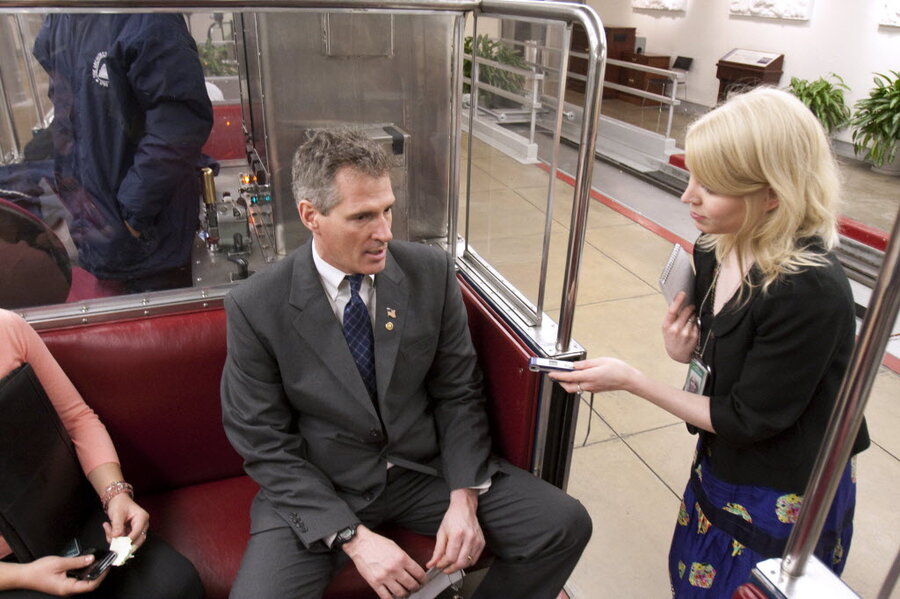If intense media attention has cleared out the smoke-filled rooms of old-style politics of dealmaking, it has also made it harder to cut deal deals anywhere, say some observers of Capitol Hill.
“We now have a media culture which is ongoing, instantaneous, where there is very little space for [lawmaker] deliberations to take place without them being leaked to the media,” Zelizer says.
Media representatives used to prepare all day for the evening broadcast or the final deadline, a schedule that seems deliberate compared with today's rapid-fire, minute-to-minute competition for the latest tidbits and utterances from around the Capitol, says Zelizer. That electrified news cycle comes courtesy of 24-hour cable news stations that have partisan perspectives and of the end in 1987 of the Federal Communications Commission's "fairness doctrine," which had required broadcast media to show both sides of a debate.
“This hypercompetitive environment made it more difficult for legislators to find insulated space to negotiate deals and lent itself to accusations of scandal and brutal partisan battles,” Zelizer writes in a recent paper on the subject. “Internet sites such as Politico covered negotiations in real time and leaks from staffers and politicians easily found their way into national visibility.”







